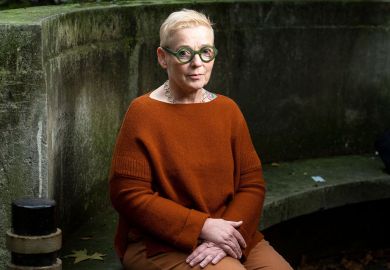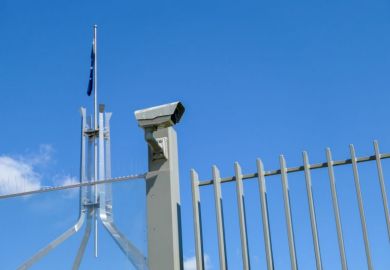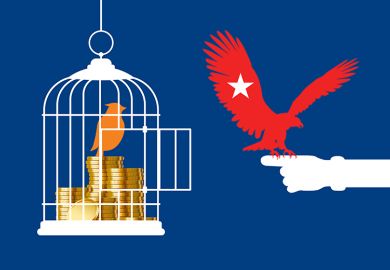Jo Phoenix’s employment tribunal victory raises a “series of challenges” for UK universities dealing with similar cases, according to lawyers, with parts of the judge’s view seemingly at odds with the sector’s direction of travel on free speech.
The criminology professor last month won her case against her former employer, the Open University, after claiming that she had been subjected to harassment and discrimination by colleagues because of her gender-critical views.
Annie Powell, a partner at Leigh Day who represented Professor Phoenix at the tribunal, told Times Higher Education that the key lesson universities should learn was that they cannot stay silent and must intervene when their staff come under attack.
She said a strong statement from the OU at the time that it would “not accept bullying and harassment in relation to these beliefs and will take action when we find these things have happened” might have swayed the tribunal in a different direction.
The institution should also have acted to remove open letters hosted on its website that called for it to disassociate from the Gender Critical Research Network co-founded by Professor Phoenix, she added.
But Smita Jamdar, head of education for the law firm Shakespeare Martineau, said this would probably have been difficult to do in the moment.
“For the OU to tell its academics this [the letter] is not scholarly enough or we don’t think there is enough evidence in here, that feels to me like a level of intervention that most academics would find quite surprising on a day-to-day basis,” she said.
Taken literally, she said, the judgment could mean that “every single communication within a university would have to be expressed in such a formal legal way…that would definitely have a chilling effect on discussion and debate”.
Witnesses in the tribunal had argued that their actions were protected by their own academic freedom, but the judge ruled this not to be the case, partly because the work was deemed not to be “scholarly”.
Ms Powell said this meant that, when exercising freedom of speech, academics should be aware that “you need to meet certain standards in that speech”.
“If you are not developing an argument, putting forward academic proposals [or] engaging in robust but respectful debate, and instead you are putting forward slurs, unevidenced and sometimes false allegations…it is unlikely you are going to have the protection of freedom of speech or academic freedom to do that,” she said.
Ms Jamdar said this was quite a narrow definition of free speech and academic freedom and one that apparently contradicted the view of the Office for Students, which has recently been tasked with upholding universities’ duties in this area.
The English regulator’s academic freedom director, Arif Ahmed, has spoken previously about the need to protect all speech that is within the law.
“This sends a bit of a shockwave because we thought we’d arrived at a balance. But now we’re being told that maybe the balance is different to what we thought it was,” Ms Jamdar said.
She pointed out that various campaigns have opposed universities introducing a code of behaviour because it could have a knock-on effect on what people feel able to say.
“But this judgment seems to suggest we need strong codes; we need to be able to say: ‘You may feel strongly about this issue but the way you are communicating it isn’t in accordance with the standards we expect.’
“That feels like a bit of a reset from where government and the regulator might have been expecting this to go.”
Register to continue
Why register?
- Registration is free and only takes a moment
- Once registered, you can read 3 articles a month
- Sign up for our newsletter
Subscribe
Or subscribe for unlimited access to:
- Unlimited access to news, views, insights & reviews
- Digital editions
- Digital access to THE’s university and college rankings analysis
Already registered or a current subscriber?








